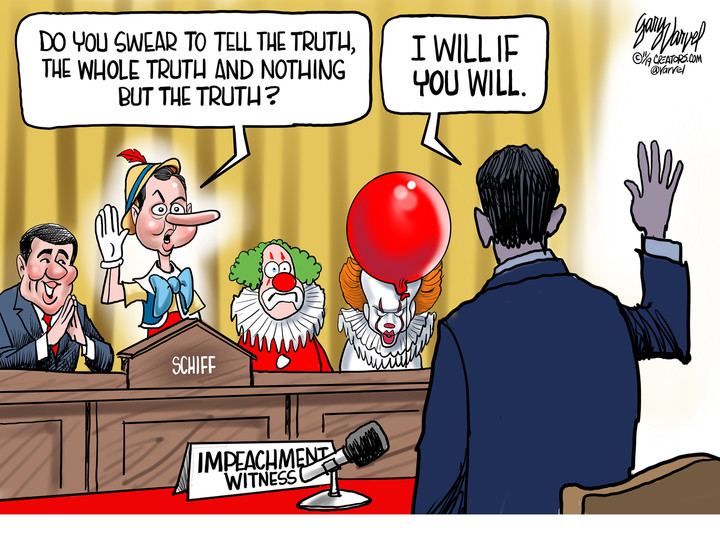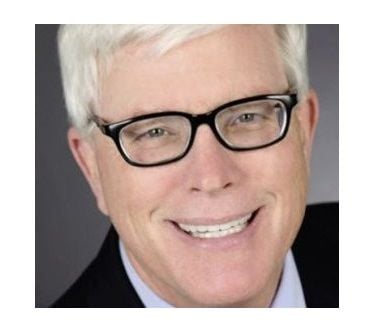
A short summary of column one: There is nothing yet revealed by the Ukraine investigation that supports a "yes" vote on any "impeachable offense" by the House, or "offense of any kind" to anyone familiar with the combustible history of politics, foreign affairs and back channels.
The closest parallel to a "first friend" such as Rudy Giuliani globe-trotting for a president is Harry Hopkins and Franklin D. Roosevelt. Hopkins journeyed abroad in 1934 and again in 1941 as FDR's unofficial eyes and ears. The excellent book by David Roll on Hopkins, "The Hopkins Touch," will surprise people when they consider the similarities between the temperaments and personal histories of Hopkins and Giuliani; but, of course, FDR was playing for much higher stakes when he sent Hopkins than when President Donald Trump sent out Giuliani.
While Hopkins was never the hero that the former mayor of New York was in that dark September, neither was Hopkins ever close to being the subject of a federal investigation.
But whatever the historical parallels, the current House investigation is deeply compromised by secret hearings, selective leaks and what looks to be the first purely partisan vote to impeach from the House since 1868. (Five Democrats voted to impeach President Bill Clinton.)
Given these assaults on fair process and the horrible precedent a purely partisan impeachment would set, it is fair to ask, should the charges that come out of the House be legitimized in any way?
And what will come of those charges in the Senate? My first column sparked some research. Kelly Johnston is a former secretary of the Senate, a former Senate GOP aide and former staff director for the Senate Republican Policy Committee before that. The secretary of the Senate is the chief legislative, administrative and financial officer of the upper chamber.
Johnston says a critical moment will arise as soon as any "Articles" arrive in the Senate, but before any substantive proceedings occur. Under the standing rules of the Senate, the Senate must approve a "Motion to Proceed" to consider the articles. And it is at that moment that senators - even and especially those critical of Trump for other reasons - should think of a future littered with partisan impeachments born of secret proceedings and abuse of the House minority's rights, as well as the rights of future presidents.
If House Intelligence Committee Chairman Adam Schiff's, D-Calif., sham charges aren't throttled in their crib by Majority Leader Mitch McConnell, R-Ky., they will birth future similar charades.
But McConnell and fellow Republicans, perhaps with support by Democrats willing to brave enormous blowback from the "resistance," should step up and say, "This far and no farther. We will not put our nation at risk of a future littered with these sort of vendettas dressed in the garb of impeachment. We won't ever approve a purely partisan Article of Impeachment for trial."
Johnston informed me that when then-Majority Leader Trent Lott, R-Miss., launched the Senate trial of Clinton, on the opening day of the new Congress, Jan. 6, 1999, he did so with a unanimous consent request for the motion to proceed. "Not only was there no objection," Johnston added, "but it was also clearly worked out in advance with the Democratic leader then, Tom Daschle."
This is where the fork in history will confront McConnell and Republicans.
Johnston imagined a scenario in which McConnell offered a measure to move forward, either with a full trial or something shorter, and a senator from either party objected. That would be McConnell's cue to shut the entire thing down. "Under the rules, there would be unlimited debate until the leader files a cloture motion," he explained. "That triggers an additional 30 hours culminating in a vote. As you know, other than nominations, it takes 60 votes to end debate (even though it just takes 51 votes to adopt a motion to proceed)."
"With 51 votes and the 'Reid Rule,' " Johnston continued, "McConnell could first block the filibuster on any motion to proceed and then move to dismiss any article of impeachment with a simple majority."
Which means there would be no trial - the political equivalent of a mistrial to throw into the mix already including the two-plus years of the Mueller hunt and the ongoing inquiry of U.S. Attorney John Durham into "Russiagate" as the country approaches the 2020 election.
This process - the refusal by the Senate to approve a motion to proceed - is how the Senate should flush articles of impeachment from the record as it stands today. Invite the House to begin again if it wants to, but using due process if it does, and backed by a bipartisan majority.
Sign up for the daily JWR update. It's free. Just click here.
(COMMENT, BELOW)


 Contact The Editor
Contact The Editor
 Articles By This Author
Articles By This Author